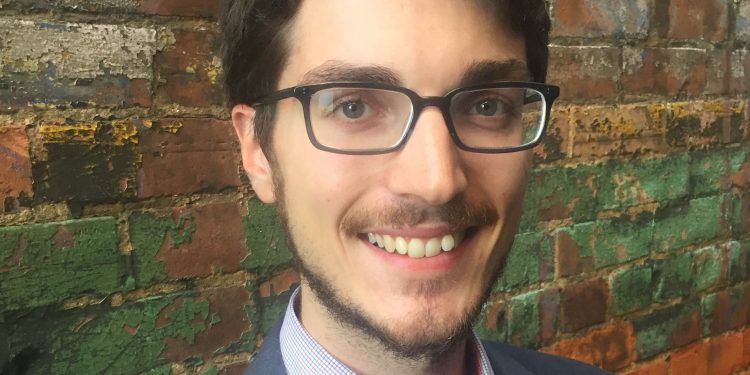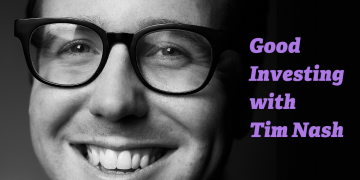Lars Boggild: Investing in solutions at Vancity Community Investment Bank
Lars Boggild is a social finance professional working on Vancity’s latest initiative- the Vancity Community Investment Bank– Canada’s first 100% impact and values based bank (yes, a bank that cares). As the Impact Capital Finance Analyst, Lars is using his finance skills for good, helping Canadian businesses solving the world’s biggest problems get access to capital. Armed with a graduate diploma in Social Innovation, a degree in sustainability and years of experience at various levels in impact investing, Lars is a triple threat to the triple bottom line.
What do you do at Vancity Community Investment Bank?
My primary responsibility is assessing opportunities to lend money to impact businesses. In a given day, you can find me preparing loan documents, working on financial models or how we define and assess impact, and having calls and meetings with clients. It’s exciting to be able to contribute to a big vision!
How is Vancity Community Investment Bank different than other banks?
In traditional banking institutions, functions are typically siloed. At Vancity Community Investment Bank, we’re a small team that together works across the full investment lifecycle from originating new opportunities, analyzing them, to fulfilling our agreements and making sure things are going smoothly. Culturally, we’re flatter too, which means that I work directly with our executive leadership and board.
When did you know you wanted to work in impact investing?
Early career experiences revealed gaps in how capital markets are supporting solutions to big challenges like climate change- it was then I knew I wanted to work in impact investing.
How did your previous work/life experience prepare you for a career in impact investing?
After some early experiences working at the edges of climate change activism and policy, I helped an endowment align its money with its mission. I was then part of the early team at Finance for Good, which I helped combine with Purpose Capital (one of Canada’s leading impact investment advisors), where I eventually took on a leadership role. Overall, I’ve had an in-depth view of impact investing in Canada, and have had the opportunity to work in different parts of it, whether at the project level, or advising investors, to now with a lender and investors directly. I’ve always been a systems thinker, which can serve you well when you’re trying to help an organization grow.
Tell us about Vancity’s initiative to create Canada’s first 100% impact bank- why is it important and what will that mean for Canadians?
We’re subsidiary of Vancity, which is Canada’s largest credit union and a global leader in advancing values-based banking. B.C based Vancity has embedded a vision of redefining wealth through progressive community development. The Community Investment Bank, is a nation-wide platform working with a variety of impact businesses providing them a committed, values-based financial partner with access to capital.
We help fill in gaps that exist between investors interested in impact, and those same impact businesses, by developing more dedicated financial infrastructure in the form of our organizational capacity to source and underwrite opportunities. Soon it will also mean more opportunities to put your money where your values are in terms of your investments.
For Canadians, we believe our work will mean more vibrant communities and a healthier environment. It’s exciting to help grow a more resilient economy working with impact businesses ranging from affordable housing developers, renewable power projects, and first nations communities.
“Valued skills in impact investing are industry and sector knowledge. Some of the most admired and in-demand people are those who know an industry (say clean-tech, or agriculture) very well. Be willing to think of work in those sectors as a type of experience to add to your impact investing “portfolio”.”
What advice do you have for people who want to get an impact investing job?
- Valued skills in impact investing are industry and sector knowledge. Some of the most admired and in-demand people are those who know an industry (say clean-tech, or agriculture) very well. Be willing to think of work in those sectors as a type of experience to add to your impact investing “portfolio”.
- Many of the impact investing jobs are internationally focused. If you’re willing to take the leap and move for work, there are some great opportunities that could help launch your career.
- We need more talent literate in multiple spaces. At the end of the day, genuinely caring won’t be a replacement for hard skills, but it’s also a huge differentiator. I hope more students, including those with finance talent, see working for impact businesses large and small, startup and corporate, as an option as well.
In the near future, we’re going to witness the biggest generational wealth transfer from Baby Boomers to Millennials. What do you think that will mean for the future of impact investing and jobs in this space?
This shift is making mainstream investors pay attention and gives me hope that impact investing is not a fad. The challenge, and opportunity, is to build out the channels through which solutions to the biggest challenges of our time are able to be financed. I think it bodes well for those trying to craft a career in this space.
Do you have a work/life philosophy?
My philosophy at work is to try to think organizationally. One of the principles that I’ve seen is that discipline and habit can change an organization’s trajectory.
In life, I’m a “small is beautiful” kind of guy, and am working hard to put myself out there more to understand my own ethics.






No Comment